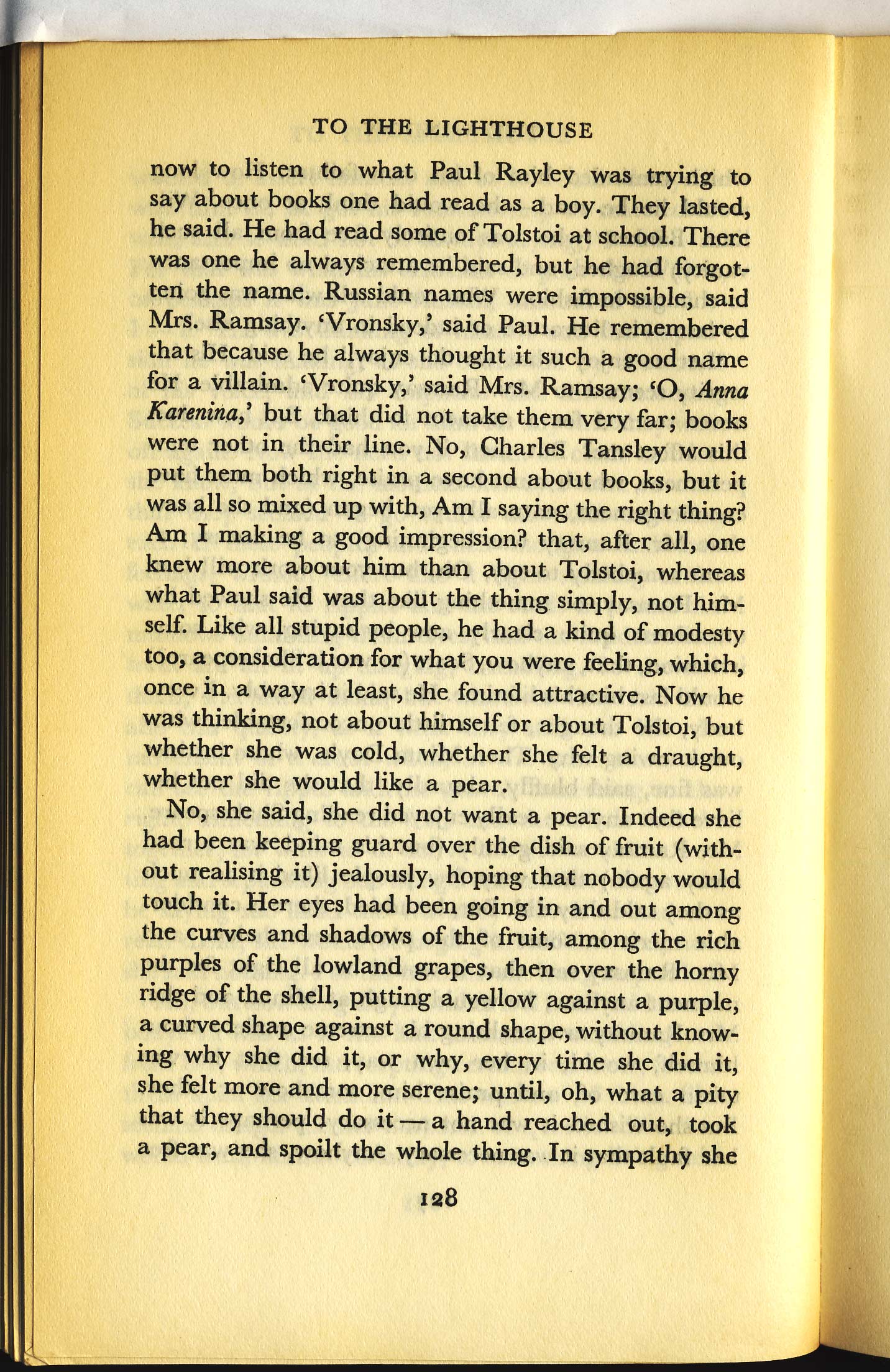
TO THE LIGHTHOUSEnow to listen to what Paul Rayley was trying tosay about books one had read as a boy. They lasted,he said. He had read some of Tolstoi at school. Therewas one he always remembered, but he had forgot-ten the name. Russian names were impossible, saidMrs. Ramsay. ŌĆśVronsky,ŌĆÖ said Paul. He rememberedthat because he always thought it such a good namefor a villain. ŌĆśVronsky,ŌĆÖ said Mrs. Ramsay; ŌĆśO, AnnaKarenina,ŌĆÖ but that did not take them very far; bookswere not in their line. No, Charles Tansley wouldput them both right in a second about books, but itwas all so mixed up with, Am I saying the right thing?Am I making a good impression? that, after all, oneknew more about him than about Tolstoi, whereaswhat Paul said was about the thing simply, not him-self. Like all stupid people, he had a kind of modestytoo, a consideration for what you were feeling, which,once in a way at least, she found attractive. Now hewas thinking, not about himself or about Tolstoi, butwhether she was cold, whether she felt a draught,whether she would like a pear.No, she said, she did not want a pear. Indeed shehad been keeping guard over the dish of fruit (with-out realising it) jealously, hoping that nobody wouldtouch it. Her eyes had been going in and out amongthe curves and shadows of the fruit, among the richpurples of the lowland grapes, then over the hornyridge of the shell, putting a yellow against a purple,a curved shape against a round shape, without know-ing why she did it, or why, every time she did it,she felt more and more serene; until, oh, what a pitythat they should do it ŌĆö a hand reached out, tooka pear, and spoilt the whole thing. In sympathy she128









